This year’s Oscar broadcast is shaping up as one of the grimmest on record, and not only because the Writers Guild of America strike has made it uncertain as to whether or not the show will take place as usual. With the exception of “Juno,” the year’s nominated films are principally dark, gritty stories about people doing terrible things to one another. And nowhere is that darkness more apparent than in the best actor category.
Academy voters will have the choice between an obsessively greedy oil prospector, a Russian mobster, a homicidal barber, a corrupt corporate lawyer, and a father investigating the brutal murder of his Iraq-veteran son. Good times! But whatever these performances lack in sweetness and light, they more than make up for in intensity and power.
The category also offers a mixed bag: three previous Oscar winners, one first-time nominee, two former TV stars, and — in a decided departure from previous years — just one Brit. While there appears to be a clear-cut winner here, each nominee reveals his own strengths.
Predicted winner: Daniel Day-Lewis
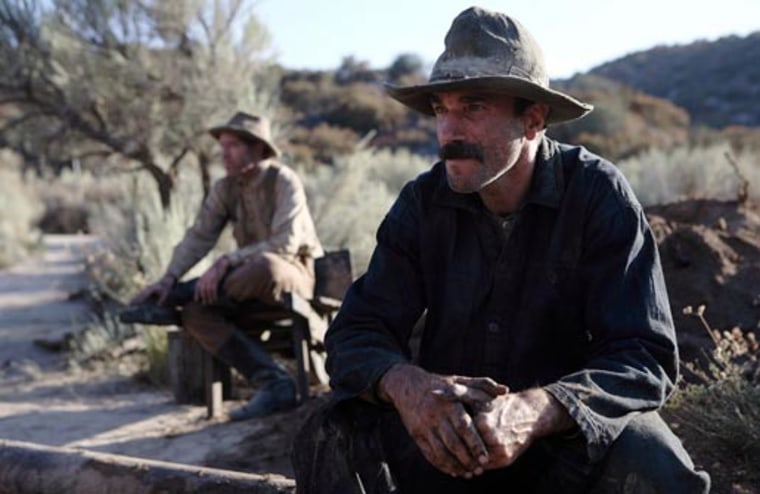
From the moment Day-Lewis’ Daniel Plainview first appears on the screen in Paul Thomas Anderson’s “There Will Be Blood,” he absolutely commands the audience’s attention, even though the character doesn’t speak for the first 20 minutes or so. By the time he does open his mouth, we’re hanging on his every word.
Not that Day-Lewis isn’t already an expert at capturing attention — since breaking through to U.S. audiences in 1985 with “My Beautiful Laundrette” and “A Room with a View,” he’s made only about a dozen feature films, and each one of them feels like an event. His nomination for “There Will Be Blood” marks his fourth citation in the best actor category, including his win for “My Left Foot,” which is a pretty amazing average no matter how you slice it.
His dazzling turn in “Blood” has brought the actor raves not only from his fans but also from previous detractors. It’s also made Day-Lewis the toast of the awards circuit, with kudos from the L.A., New York, Chicago, Dallas-Fort Worth, and Southeastern critics groups on top of his win at the Golden Globes and Screen Actors Guild and his nomination from the British Academy of Film and Television.
It’s the kind of standout work that deserves to be mentioned in the same breath as the finest screen performances by Brando and De Niro, and it seems exceedingly likely that the Academy feels that way, too.
George Clooney
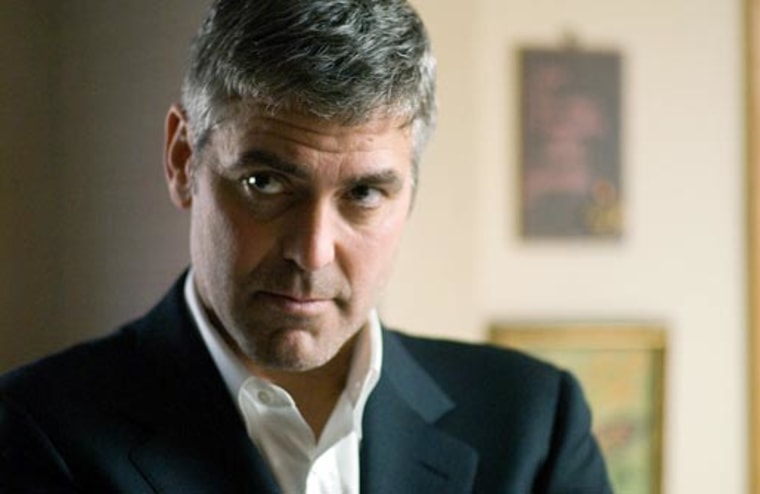
It would appear that it’s the Academy’s love of Clooney that has made “Michael Clayton” one of the most-nominated movies this year. After all, the movie was neither a huge commercial success nor a big winner among of critics’ awards. But Clooney has proven himself to be an Academy fave, particularly after pulling off simultaneous nominations in 2006 as a director (“Good Night and Good Luck”) and an actor (“Syriana,” for which he scored a best supporting actor statuette).
The title role of “Michael Clayton” allows Clooney to play to his strengths while simultaneously subverting them. Clayton is a “fixer” for a high-powered law firm, cutting shady deals, leaning on people, generally being glib and personable and accommodating, while hiding the hollow shell that his soul has become. When a slimy litigation case sends his co-worker and friend around the bend, Clayton finds himself compelled to stand for something for the first time.
The former “ER” heartthrob is terrific in the film, cementing his position as a strong leading man with a good eye for both commercial and personal material. But given his recent Oscar win — and the intense competition from Day-Lewis — this won’t be his year to win.
Johnny Depp
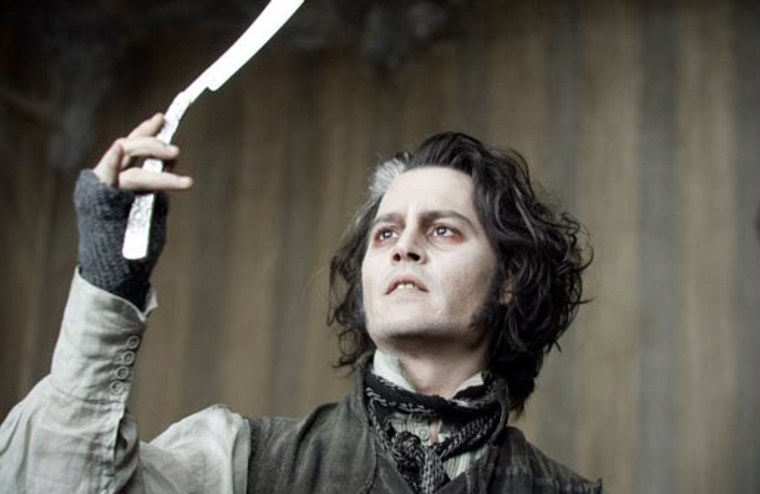
Depp first entered the Academy radar for daring to give an eccentric performance in the middle of a summer franchise blockbuster like “Pirates of the Caribbean: The Curse of the Black Pearl.” Now he’s earned a third nomination for his portrayal of the vengeance-minded, Sondheim-singing coiffeur in “Sweeney Todd: The Demon Barber of Fleet Street.” While Depp has sung with rock bands over the years, “Sweeney” marks his first time vocalizing onscreen, and as anyone who’s ever sung Sondheim can tell you, the composer’s complicated showtunes aren’t exactly training wheels for musical-theater amateurs.
But he nails the whole thing, from the songs to the character’s bloody intensity, and it’s definitely a step up from “Charlie and the Chocolate Factory,” his last collaboration with director Tim Burton. (The two have now worked together on six films.) It’s Depp’s unpredictable onscreen intensity — coupled with a desire to work with filmmakers like Burton, John Waters, Jim Jarmusch, Sally Potter, Roman Polanski and Marek Kanievska, among many others — that rescued him from being stuck in teenybopper-pinup limbo after starring on the hit show “21 Jump Street.”
There are certainly more Oscar nominations in Depp’s future, and probably even a win. But this won’t be his year.
Tommy Lee JonesAn Oscar-winner for “The Fugitive,” Tommy Lee Jones was expected to be a nominee once again this year — but for his role as a seen-it-all sheriff who comes face to face with unspeakable evil in the Coen Brothers’ “No Country for Old Men.” But while audiences stayed away from “In the Valley of Elah” in droves — a fate shared by “Rendition,” “Redaction” and several other Iraq War–themed movies released in the fall — a quorum of Academy members obviously dug Jones’ work in Paul Haggis’ follow-up to “Crash.”
It’s a movie, and a performance, that deserves more attention from the general public. Where “Crash” was thuddingly preachy and obvious in its points about race relations, “Elah” uses a good old fashioned whodunit to make more subtle points about America’s disastrous foreign policy and what it’s doing to our young men and women fighting overseas.
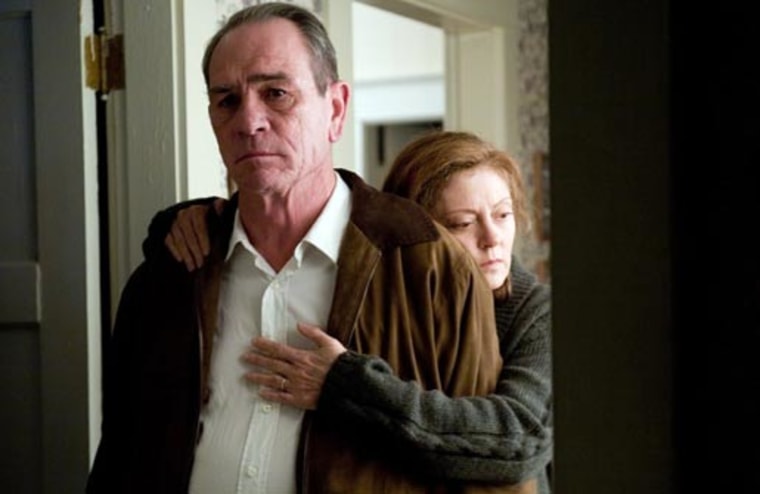
Jones stars as Hank Deerfield, a retired Army investigator who starts looking for clues when his son, freshly returned from a stint in Iraq, goes AWOL. When the young soldier is found dead, and in pieces, lots of ugly secrets come to the surface. Hank is prickly and obnoxious — not a big stretch for Jones’ on-screen persona — but he’s also grappling with a tricky investigation, his fragile relationship with his bereft wife (Susan Sarandon), and his own problematic bond with his late son.
“Elah” is the least-seen of the five movies in this category — trailing even the limited-release “There Will Be Blood” by more than $3 million — and that pretty much spells doom to Jones’ chances of being honored here. But he was in two of the year’s best reviewed films, he’s an acclaimed director, and he’s already got an Oscar at home, so he’ll be just fine, thanks.
Viggo Mortensen
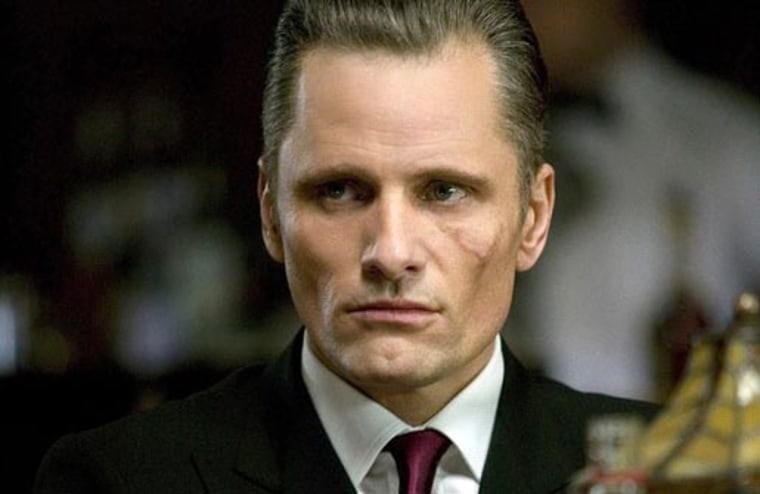
Mortensen’s road to the Kodak Theatre has been an interesting one — in addition to slowly building up a fascinating résumé as an actor, he’s also been a poet, a photographer, a painter and an icon of the underground during the years he spent married to punk rock diva Exene Cervenka. But onscreen, Mortensen has established his cred in films ranging from “G.I. Jane” to “Portrait of a Lady” to “A Walk on the Moon” to the massively popular “Lord of the Rings” franchise.
His work with director David Cronenberg has brought Mortensen to a whole new career plateau, first for his portrayal of a man trying to escape his criminal past in “A History of Violence” and now as a Russian mobster who may be more than he appears in “Eastern Promises.” While many point to the thrilling bathhouse fight scene, in which a naked Mortensen dispatches two would-be assassins, the actor’s first Oscar nomination isn’t just about the nudity. The chillingly cool tango of empathy and intimidation that Mortensen conducts with co-star Naomi Watts provides one of the film’s most exciting throughlines, as does Mortensen’s give-and-take with Vincent Cassel as a coddled mafia chief’s son.
Recognition by the Academy confirms that Mortensen is a talent on the rise. But with such strong competition, he’s firmly in the “it’s an honor just to be nominated” camp this year.
Should have been nominated: Gordon Pinsent
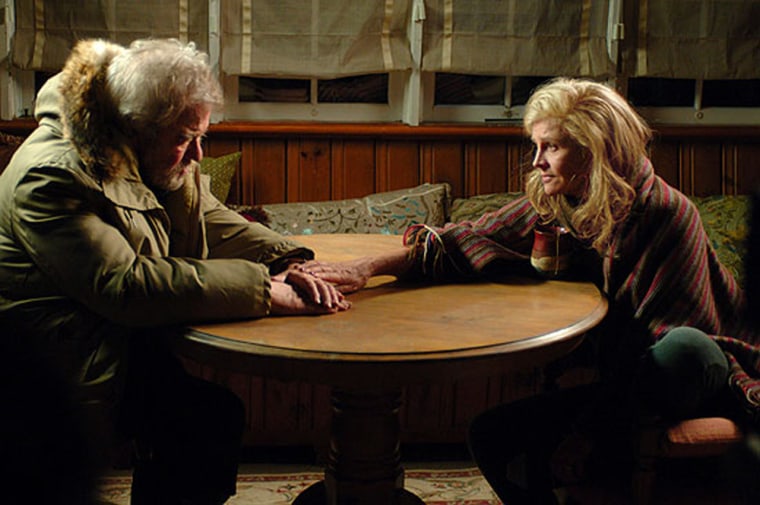
While Julie Christie and Sarah Polley were justly nominated for respectively starring in and writing the exquisite “Away from Her,” there’s one key member of the ensemble who didn’t receive his due from the Academy. Gordon Pinsent as Grant, the husband who helplessly watches Christie’s Alzheimer’s-afflicted character drift away, anchors the film. His character, in fact, perfectly counterbalances Christie’s through his efforts to cope with the situation, as well as through Grant’s slow realization that his marriage was already on rocky ground — and that he’s to blame — well before his wife’s dementia became pronounced.
One of the most powerful moments in Polley’s assured directorial debut comes when Grant makes a devil’s bargain with Olympia Dukakis, playing another spouse of an Alzheimer’s patient, and they exchange a look that silently acknowledges to each other that they know what they’re really doing. It’s not to remove any glory from Christie’s bravura work to note that Pinsent plays such a key role in holding the film together.
Alonso Duralde is the author of “101 Must-See Movies for Gay Men”; find him at .